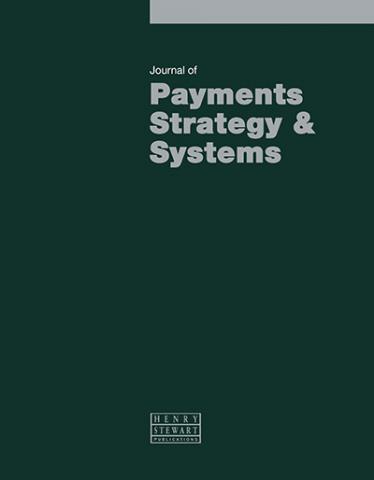“I find the content of Journal of Business Continuity & Emergency Planning to be up to date, easy to follow, and applicable to the professional in the field, the student in the class, and the academic. This journal offers a mix of articles from many disciplines in a manner that allows the professional to utilise the data immediately. I have personally used material from this journal on multiple occasions, both in my academic and professional endeavours.”
Instant payments and cards: Apples and oranges or a possible substitute?
Click the button below to access the full article.
Abstract: If instant payment instruments are to disrupt the card payments market as expected, this will require propositions that match or surpass those currently developed for cards. This begs the question whether instant payments can realistically substitute for certain card transactions. Certainly, there seems to be sufficient common ground for the former to substitute for the latter. Nevertheless, the two instruments are not the same, and each has its own characteristics, specific use cases and advantages. This paper explores some of the barriers to the full uptake of instant payments and the main challenges when it comes to driving adoption among the wider public.
Keywords: instant payments; cards; euro area; retail payments
Diederik Bruggink is Managing Director of Bruggink Consultancy and is an independent international expert in cards, payments, and market infrastructures. During his career, he has led and worked on several international and high-visibility projects, mainly with a focus on cashless payments, across the whole payments value chain, from (e-commerce) merchant acquisition through to issuing banks and within card switching and card processing organisations. He was one of the key authors of the first three editions of the ‘World Payments Report’, and he makes regular appearances on conferences in the cards and payments industry. He is a member of the Editorial Board of the Journal of Payments Strategy & Systems.
Alessia Benevelli works at the European Savings and Retail Banking Group, where she provides members with legal and policyoriented insight into all payments-related topics, including their interplay with innovation and data protection. She raises awareness regarding the potential risks arising from legislative developments and drafts position papers on behalf of members. As an active member of various work streams, committees and EU bodies, she is well positioned to help members engage in public policy exchange with regulators and policymakers.



